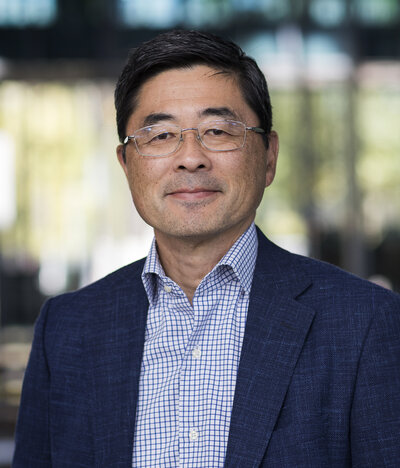Keita Ito
Department / Institute

RESEARCH PROFILE
Keita Ito chairs the research group Orthopaedic Biomechanics, where engineering and biology are combined to expand our understanding of the biomechanical function of musculoskeletal tissues as well as their adaptive developmental and physiological nature. This knowledge is then applied to explore and develop regenerative treatment strategies. Currently the research focuses on four musculoskeletal tissues: bone; articular cartilage; intervertebral disc; and tendons/ligaments.
He personally leads the research effort on the topic of the intervertebral discs. Degenerative disc disease is one of the most prevalent causes of back/neck pain that often leads to disability for individuals of working age. The goal of the research is to understand the basic mechanisms of disc degeneration and to develop long-term functional treatments for this condition.
The strategy focuses on: exploring deficient nutrition, loss of high tissue tonicity and mechanical loading as mechanotransduction mechanisms of cellular stimulated degeneration; how these degenerative changes may cause failure of disc function; and then using this understanding to explore tissue engineering approaches towards disc regeneration. The approach is to combine numerical simulations with tissue explant ex vivo experiments in bioreactors where the physical environment can be controlled.
'The ‘smartest’ biomaterials are the natural tissues in our bodies. If only we could unlock their secrets and bioengineer smart biomimetic biomaterials that help our tissues to heal, responding to their cues.'
ACADEMIC BACKGROUND
Keita Ito studied Mechanical Engineering at the Massachusetts Institute of Technology (MIT, Cambridge, MA, USA) where he received his MSc degree in 1987. In 1994 he obtained his ScD in Medical Engineering and Medical Physics from MIT. The next year he graduated as MD from Harvard Medical School (Boston, MA, USA). From 1995-1996 he was a post-doctoral Research Fellow at the AO Research Institute (Davos, Switzerland), to become group head of the Cartilage Biomechanics Group from 1996-2003 and Vice Director and leader of the Mechanobiology Program from 2003-2007. From 1997-1998 he was a Research Fellow at the department of Orthopaedic Surgery at Inselspital University Hospital Bern (Switzerland). In 2002 and 2003 he was Visiting Scientist at the department of Biomedical Engineering of Eindhoven University of Technology (TU/e, The Netherlands), where he was appointed Professor of Mechano-biology and Musculoskeletal Tissue Differentiation in 2004. In 2007 he became Full Professor of Orthopaedic Biomechanics at TU/e. In 2013 Ito was appointed as Professor of Mechanobiology in Orthopaedic Regenerative Medicine at the University Medical Center Utrecht (The Netherlands), in collaboration with TU/e.
Key Publications
-
L.G.E. Cox,C.C. Donkelaar, van,B. Rietbergen, van,P.J. Emans,K. Ito
Alterations to the subchondral bone architecture during osteoarthritis : bone adaptation versus endochondral bone formation
Osteoarthritis and Cartilage (2013) -
B.G.M. Dijk, van,E. Potier,K. Ito
Long-term culture of bovine nucleus pulposus explants in a native environment
The Spine Journal (2013) -
P. Christen,K. Ito,R. Ellouz,S. Boutroy,E. Sornay-Rendu,R. Chapurlat,B. Rietbergen, van
Bone remodelling in humans is load-driven but not lazy
Nature Communications (2014) -
F.C. Bach,S.A.H. de Vries,F.M. Riemers,J. Boere,F.W.M. van Heel,S.S. Goerdayal,P.G.J. Nikkels,K. Benz,L. B. Creemers,A.F.M. Altelaar
Soluble and pelletable factors in porcine, canine and human notochordal cell-conditioned medium: implications for IVD regeneration
European Cells and Materials (2016)
Ancillary Activities
- Deputy Editor, Global Spine Journal
- Adjunct appointment, Universitair Medisch Centrum Utrecht
- Editorial Board, Biomechanics and Modeling in Mechanobiology
- President and Executive Committee member of the foundtaion, World Council of Biomechanics
- Treasurer and board member of non-profit foundation set up to organize and host the European Society of Biomechanics meeting in Maastricht in Jul 2021, ESB2021
- CSO, NC Biomatrix B.V.